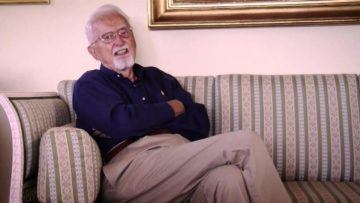 Lance Taylor over at INET:
Lance Taylor over at INET:
An obituary for Axel Leijunhufvud (Sept 6, 1933 – May 5, 2022)
Axel Leijunhufvud’s sad passing on May 5th has rightly stimulated a round of tributes to a thinker of uncommon breadth. But there is perhaps reason to doubt how widely appreciated the diversity of his thinking really was. Leijunhufvud changed the colors of his economic reasoning in response to many strands of 20th-century discussion, repainting each one. He had an ample palette and his color mixes were always interesting – an artist of macroeconomics indeed. Never lacking confidence and blessed with understated charisma, he was a member of one of Sweden’s oldest aristocratic families. Lionhead is a literal translation of his surname. (Old Swedish noble names can be peculiar. For example, Oxstars and Swineheads still roam the land.)
Axel’s substantial contributions to economic thinking came in sequence. Each differed substantially from its predecessor. The first was his book On Keynesian Economics and the Economics of Keynes. Heavily influenced by Robert Clower’s “dual decision hypothesis” which can be summarized by his aphorism “Money buys goods and goods buy money but in a monetary economy goods do not buy goods.” Money is a form of financial institutions’ debt. It can be used to purchase goods but is not a good in itself. Axel’s book elaborated elegantly on this idea because it can lead to severe coordination problems between the financial and real sides of the economy.
More here.
